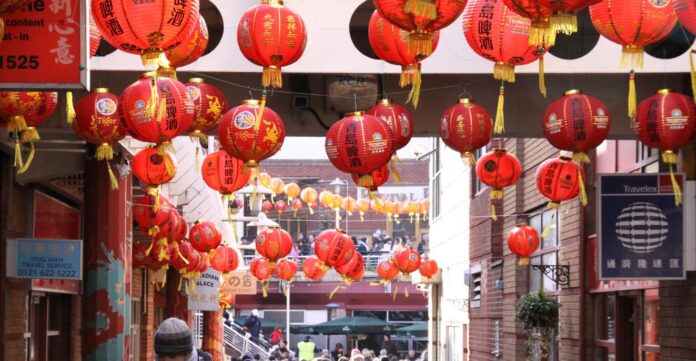With the first day of Lunar New Year this Saturday, various brands and retailers use the holiday’s festivities as a marketing opportunity to increase sales.
From Nike releasing high-top sneakers with a design of firecrackers and Chinese knotting to Apple offering limited-edition AirPod Pros fashioned with an ox emoji on its case in 2021, businesses have worked to capitalize on the holiday’s celebrations, according to NBC News.
In 2022, for instance, Coca-Cola promoted its products with a 30-second advertisement that showcased the year’s zodiac animal, a tiger, and the holiday’s family-central principles.
In addition to major corporations funding marketing campaigns, smaller Asian American-owned businesses have experienced a growth of sales from the festivities.
Nadia Liu Spellman, founder of the restaurant chain Dumpling Daughter, described seeing a higher customer base due to dumplings symbolizing currency and good fortune in Chinese superstition, Inc. Best Workplaces reported.
“I’ve been in the restaurant business for 10 years this fall, and I’ve seen a very clear growth in the popularity of Lunar New Year,” said Spellman to Inc. Best Workplaces. “If you eat [dumplings] on the first day or all the days of the Lunar New Year, you’re supposed to have prosperity in the new year. You eat things that symbolize what you want.”
While many businesses experience a boost in sales from Lunar New Year, some question whether the holiday’s commercialization would “whitewash” traditions or promote mainstream recognition of the culture, NBC News reported.
Ranjana Singh, Vietnam and Indonesia chairperson of global communications company WPP, warned companies to not “just tick the box” when launching marketing campaigns for Lunar New Year, according to BBC.
“To understand what, why and how people celebrate is very important,” said Singh to BBC. “We see many examples of brands just ticking the box. For example, superficial showing of large families, but that doesn’t make you stand out.”
For instance, BBC reported that Dolce & Gabbana experienced immense backlash for featuring a Chinese actor struggling to eat Italian cuisine with chopsticks in a 2019 advertisement. Community members perceived the campaign to be making a mockery of Chinese culture.
In the same year, Burberry’s marketing campaign was perceived as “creepy” and not in line with the family-centric festivities of Lunar New Year.
“It showed a lack of empathy from the brand,” said Tana Licsandru, researcher at Queen Mary University of London focused on branding inclusivity, to BBC.
Believing that companies have become more culturally sensitive within the past few years, Asian American business owners encourage companies to participate in the festivities, so long as they avoid the use of stereotyping and conduct fact-checking before launching their campaigns, according to Inc. Best Workplaces.
Tim Ma, culinary director of Laoban Dumplings and founder of Chefs Stopping AAPI Hate, noted that widespread participation in Lunar New Year festivities from different brands can help uplift mainstream recognition of the Asian American community.
“We see people from other communities celebrating along with us, which is great,” said Ma to Inc. Best Workplaces. “It’s the same thing with all the anti-Asian violence that was happening, other communities coming to stand by our side.”
AsAmNews is published by the non-profit, Asian American Media Inc.
Happy Lunar New Year. Join our $5,000 matching grant challenge. A generous donor is matching dollar for dollar every donation through February 16 up to $5,000. All donations will go toward fully funding an editor position at AsAmNews. All donations are tax deductible. You can make your donations here via credit card, debit card, Apple Pay, Google Pay, PayPal and Venmo. Stock donations and donations via DAF are also welcomed.
Please also follow us on Instagram, TikTok, Facebook, YouTube and X.



